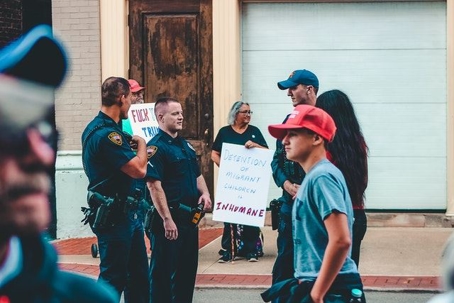“They Never Read Me My Miranda Rights!”
Miranda v. Arizona, is the landmark U.S. Supreme Court case that ruled that the police are required to inform a person, who is in their custody, of certain rights prior to interrogation in order to adequately protect the individual’s 5th Amendment right not to incriminate herself.
What Are Your Miranda Rights?
384 U.S. 436 (1966). Although many police departments have standard forms or cards from which Miranda rights are read, the courts have made clear that there is no specific wording that must be used. Rather, language that sufficiently captures the meaning of each right is sufficient. The Miranda rights are as follows:
- You have the right to remain silent.
- Anything that you say can and will be used against you in a court of law.
- You have the right to an attorney.
- If you cannot afford an attorney, one will be appointed for you.
Failure to Provide Miranda rights
Two things must happen for the failure to provide Miranda rights to be an issue in your case. First, you must have been in custody. Second, you must have been subject to interrogation or its functional equivalent by the police or their agents. The general rule is that if there is a Miranda violation, the statement and/or its fruits may not be used against you at trial in the prosecution’s case in chief.
Definition of “In Custody” in Virginia
What does “in custody” mean for Miranda purposes? Miranda rights apply to those who have been formally arrested as well as those who have not been formally arrested, but have had a significant restraint on their liberty imposed. Determining whether a person is in custody for Miranda purposes requires a totality of the circumstances analysis. Wass v. Commonwealth, 5 Va. App. 27 (1987).
Some of the factors considered are “whether a suspect is questioned in familiar or neutral surroundings, the number of officers present, the degree of physical restraint, and the duration and character of the interrogation.” Id. at 31. Other factors include whether the individual was told that he was not under arrest, whether the investigation was focused upon the suspect and whether the interrogation was accusatory in nature.”
Case Law on Miranda Rights in Virginia
Davis v. Allsbrooks, 778 F.2d 168, 171-72 (4th Cir. 1985); Smith v. Commonwealth, 219 Va. 455, 470 (1978). Whether a person is in custody is to be determined “from the viewpoint of a reasonable person in the suspect’s situation.” Wass, 5 Va. App. at 33.
What does “interrogation” mean for Miranda purposes?
Interrogation “refers not only to express questioning, but also to any words or actions on the part of the police (other than those normally attendant to arrest and custody) that the police should know are reasonably likely to elicit an incriminating response from the suspect.” Rhode Island v. Innis, 446 U.S. 29, 301 (1980). The courts acknowledge that even if the police are not specifically asking questions, they can say and do other things to gather information from a suspect.
Assessing Your Rights and Criminal Case in Virginia
The analysis turns on whether such question, act, statement or otherwise would reasonably be likely to cause a person to respond in a way that would incriminate themselves. For instance, suppose you were in custody and the police were to ask, “Would you like a glass of water?” prior to informing you of your Miranda rights. If you then reply with a full confession to a crime, this will not be considered a Miranda violation because it is not reasonably likely that such a response would have flowed from that question.
Criminal Defense Lawyer in Alexandria and Leesburg VA
Miranda issues require the analysis of trained criminal defense lawyers. The trial lawyers in Leesburg VA and Alexandria VA of King, Campbell, Poretz & Mitchell, PLLC can assist you in evaluating your case.

